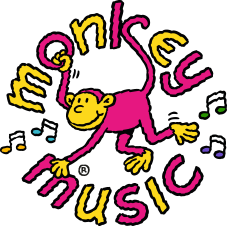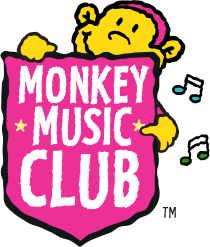Ears, music and early child development
Although your baby’s ears are fully developed at birth it may be six months before she can fully hear and interpret a range of sounds. This is because at birth your baby’s ear will still be full of fluid, and the areas of the brain that relate to hearing are still developing.
But this doesn’t mean she can’t hear. Studies have shown that even unborn babies at 16 weeks appear to respond to music[1] in the womb. Having emerged into the world, in the first days of their lives babies it is the music processing centres of the brain to interpret their mother’s voice[2]. In fact, babies recognise their mother’s (and I assume father’s) voices much earlier than they are able to recognise their faces.
But not all audiological stimuli are equal. Researcher Sandra Trehub at the University of Toronto, Mississauga, found that singing is more effective at keeping babies calm than talking. Furthermore, it can result in stronger social bonds with parents, better health, improved attention and emotional regulation, as well as better language fluency. In fact, there is a huge and ever-growing body of evidence highlighting the benefits of music at all ages from infancy through to old age and it is with that in mind that Monkey Music has been designed - our curriculum is structured to compliment your child’s natural development (see below).
Hearing and early life
Newborns pay close attention to sounds, especially high-pitched ones and will respond to familiar noises, such as your voice or a frequently repeated lullaby. But it is normal for your baby not to react to every sound she ears. For example, although she may startle at loud or unexpected noises, she will (hopefully!) sleep through the telephone ringing or the dog barking. It is only around the age of three months that both the temporal lobe - the part of your baby's brain that helps with hearing, language, and smell – and general physiology are developed enough that your baby is likely to look directly at you and gurgle in an attempt to talk back when she hears your voice. Even then, babbling and listening can be hard work for your baby so she may lose concentration quickly while you talk or read to her.
From then on progress accelerates. From four months your baby will react excitedly to sounds, and she may smile when she hears your voice. She may start watching your mouth intently when you speak and try to copy you, even uttering consonant sounds such as "m" and "b". Aged six or seven months your baby will start to realise where sounds come from and turn quickly towards new ones. She'll also be able to respond to very quiet noises as long as she's not distracted. By the time your baby is a year old, she'll be able to recognise her favourite songs and may even try to join in!
Sounds, Music and Singing
In those early months everything is a fascinating learning experience for your baby as she begins to interpret the world around her. And sounds are one of the more enthralling things. While she needs to reach out to touch something or turn her head to see, sounds come to her whether she is looking for the stimulation or not. Sudden, loud noises may startle her but many strange sounds such as wind chimes or a ticking clock will often make her giggle and giggle.
While a spoon and saucepan will generate hours of entertainment, if you want some lovely and fun infant and toddler specific instruments, or a wider variety of age-specific songs then have look at the shop on our website: https://www.monkeymusic.co.uk/shop.
While your baby may generally delight in the cacophony around her rhyme, rhythm and repetition help with brain development and so music and song will support her development even if she doesn’t yet understand the words. While playing songs on the Spotify is great, every moment you spend singing to your baby, irrespective of how you think your voice sounds, will benefit them and build the bond you share. Watch your baby’s reactions as you sing together and you’ll both see her developing and her love for you growing.
That ethos of ‘sharing precious time’ is what Monkey Music is built on. Our age specific music classes provide a safe environment for you to relax with like-minded carers and a great teacher who will lead the way as your child enjoys the incredible array of benefits that music provides. You can read more about our age specific curriculum below, or if you would like to sign up for a free taster class then click here: https://wwwapi.monkeymusic.co.uk/Classes/ Irrespective, I hope that music and song provide a shared bond for the two of you for many years to come.
Monkey Music’s curriculum
Our Rock ‘n Roll class for babies from aged 3 months use song to familiarise baby with language around everyday things like going round the supermarket, going for a walk etc. But they are also designed to reinforce the bond between carer and child, to encourage the infants’ movement and explore a range of sounds and senses.
In Heigh-Ho our class for toddlers’ aged 12+ months repetitive songs encourage the children to join in with actions and help familiarise them with core vocabulary. Toddlers love experimenting with the range of instruments and it is wonderful watching them learn. For example, they are so pleased with themselves the first time they realise they make the music stop by staying still.
In Jiggety-Jig, our class for 2 and 3-year-olds, the syllabus uses the naturally rhythmic and repetitive nature of music to support language development, numeracy skills and physical development.
Ding-Dong is the final part of our syllabus, designed for 3 to 4-year-olds, where we encourage children to explore music and express themselves. Children get the chance to sing solos, invent dances, learn to read music and experience a different instrument every week.
Posted: 28/07/2022
Back



